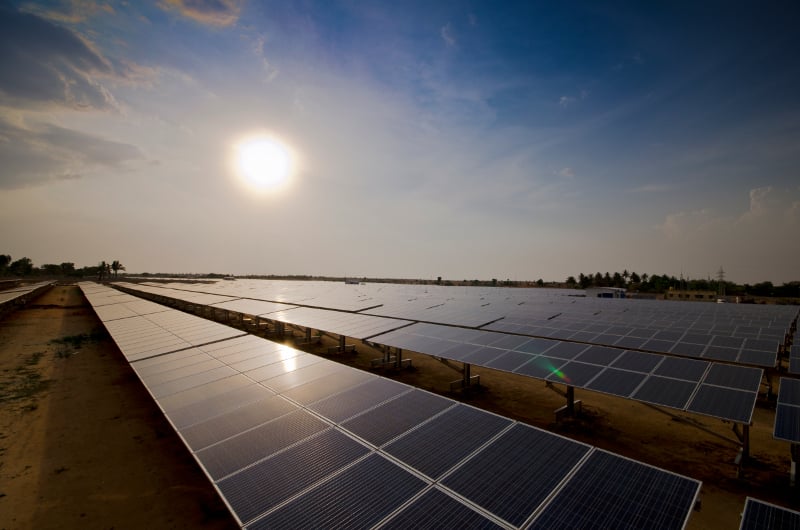
Solar prices in India could be substantially lower than coal by 2020, helping the technology become a major part of the country’s energy mix, according to a report by international consultancy firm KPMG.
On the eve of Intersolar India, which kicks off in Mumbai later this week, KPMG’s report, ‘The rising sun: Disruption on the horizon’, predicts that over the next decade solar will scale up significantly, reaching a 12.5% market penetration by 2025.
Unlock unlimited access for 12 whole months of distinctive global analysis
Photovoltaics International is now included.
- Regular insight and analysis of the industry’s biggest developments
- In-depth interviews with the industry’s leading figures
- Unlimited digital access to the PV Tech Power journal catalogue
- Unlimited digital access to the Photovoltaics International journal catalogue
- Access to more than 1,000 technical papers
- Discounts on Solar Media’s portfolio of events, in-person and virtual
Or continue reading this article for free
A key factor in this scenario is the falling cost of solar, with KPMG predicting that by 2020 solar power will have reached INR4.20/kWh and INR3.59/kWh by 2025, up to 10% lower than coal.
Another major disruptor identified by KPMG is the advent of the rooftop PV market in India. Although rooftop PV is already competitive in India for many industrial, commercial and some residential customers, it is being held back by immature or non-existent net metering policies and the poor state of India’s grid.
But KPMG said this could change with the “significant evolution” expected in storage technologies, which will make self-consumption of solar power generated particularly in residential settings more attractive.
“The bigger disruption which we are yet to see may come from the solar rooftop business. This will be supported by a rise in storage technologies, and together they could change the energy landscape. Solar rooftop power, today, is already competitive compared to grid power; however, it requires net metering support. Though, going forward, this will change due to the significant evolution that is expected in storage technologies,” the report said.
The consultancy predicted that India’s rooftop market could reach 10GW by 2020 and 49GW by 2025. Initially, the rooftop market will be dominated by industrial consumers over the next five years, but then accelerate after 2020 due to the likelihood of storage solutions making rooftop solar more attractive to householders at around this time. In the long term, residential PV will be the dominant player in the rooftop market, according to KPMG.
The findings of the study echo those of a report published by Deutsche Bank over the summer, which predicted that investment in solar power in India would surpass investment in coal by around 2020.
KPMG said the disruption it foresaw from solar, although broadly positive for India, raised a number of implications for the way in which the country plans and delivers new energy infrastructure.
“There is a need to fundamentally rethink our planning processes and approach in order to successfully incorporate a high [renewable energy] scenario,” the report said.
In particular it highlighted the need for greater central coordination of the activities currently being undertaken by individual states to plan their own energy mix for the future.
“This can be achieved through a powerful planning entity that is equipped with the right resources. Planning protocols need to be defined which identify the roles and responsibilities of the central planning body and the state bodies,” KPMG said.
The consultancy added that if solar does reach the levels it envisages in India, it would contribute 4% of the 33-35% reduction target it has promised to make in the carbon intensity of its GDP by 2030 under the pledges submitted ahead of the COP21 climate talks in Paris later this year.
PV Tech will be reporting live from Intersolar India 2015, which gets underway on Wednesday 18 November.
